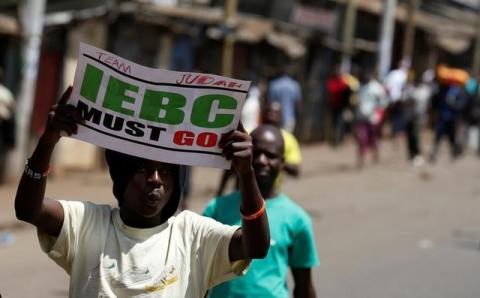Advertisement
Kenyan lawmakers propose electoral reforms after weeks of protests
NAIROBI (Reuters) - Kenya's parliament has proposed giving the Supreme Court more time to hear petitions against future presidential votes, after weeks of protests by oppositions parties accusing the main election body of bias.
The results of both the 2007 and 2013 presidential elections were disputed, and in the aftermath of the December 2007 vote Kenya plunged into several weeks of ethnic bloodletting that killed about 1,200 people.
Now, more than a year before the next election in August 2017, opposition protests have been staged on an almost weekly basis against the electoral oversight body which opponents say show pro-government bias, a charge the body denies.
At least four people have been killed in violence associated with the protests, alarming many Kenyans and Western powers, who have called for dialogue and condemned what they call the excessive use of force by police.
In a statement published in newspapers, lawmakers proposed a bill to give the Supreme Court 30 days instead of 14 days to deliberate over petitions so it can "deliver the reasons for the decision along with the verdict".
The lower house of parliament, or National Assembly, is also proposing amending the constitution and Independent Electoral and Boundaries Commission (IEBC) Act to remove the role of the IEBC in resolving disputes relating to nominations.
It called for a public consultation across the country between July 4 and July 15.
In 2013, the Supreme Court ruled President Uhuru Kenyatta won the vote, which was accepted by his rival Raila Odinga, who accepted the ruling, thereby preventing a new flare up. But Odinga is now leading protests against the IEBC.
The amendment to the IEBC Act proposes setting up a panel to select commissioners comprising two people nominated by the largest party or coalition in the National Assembly, and two people nominated by the second largest party or coalition.
In the current parliament, the largest parliamentary party is Kenyatta's Jubilee coalition and the second largest is Odinga's opposition CORD movement.
The other group that would also have a say in selecting members of the panel, to be appointed by the president, is the Public Service Commission, the draft says.
The panel will then be responsible for selecting the nine members of the electoral commission.
(Reporting by George Obulutsa; Editing by Edmund Blair)



















Add new comment